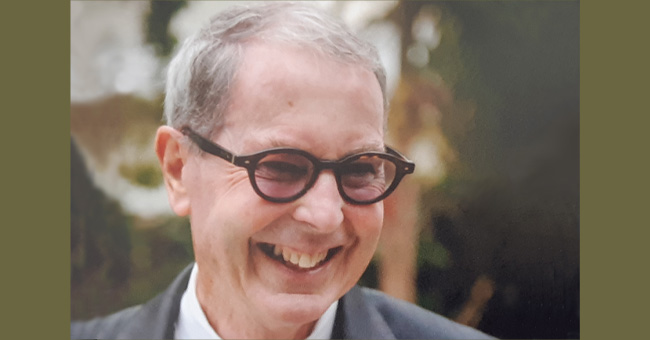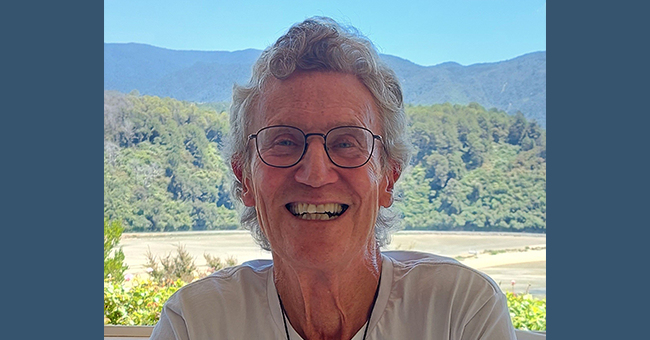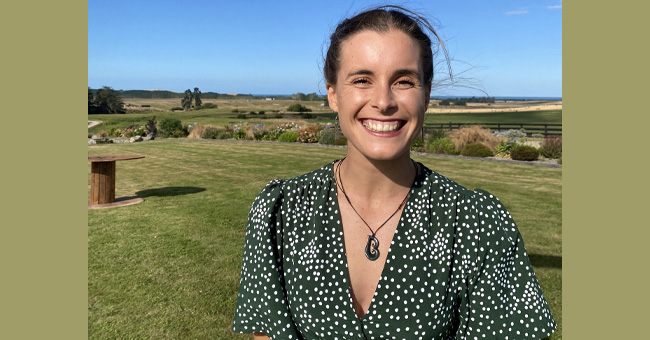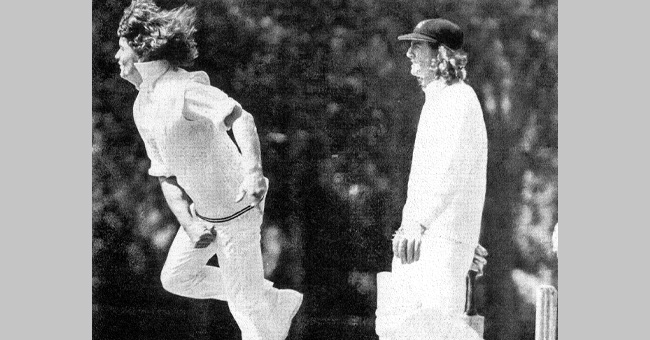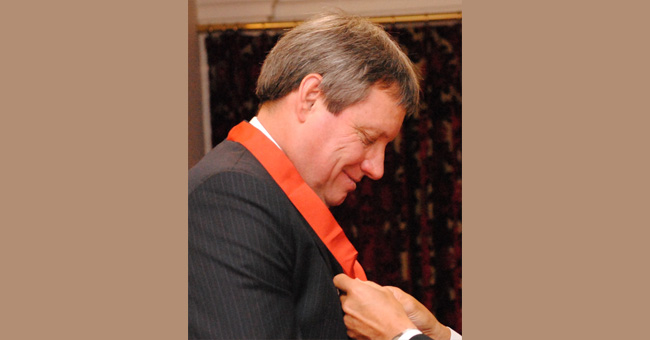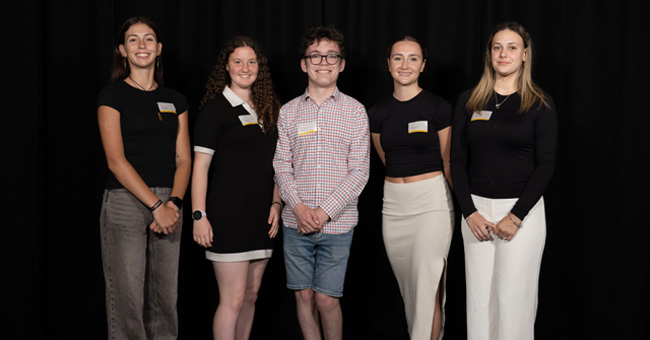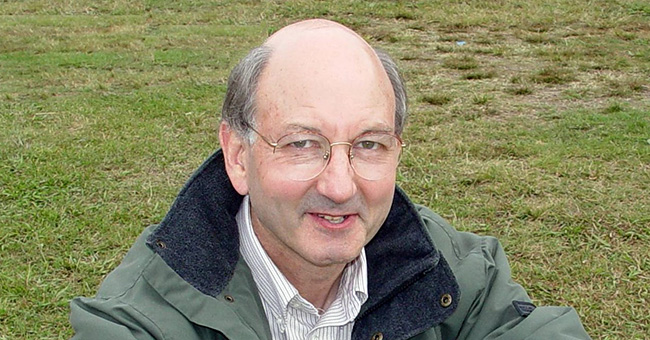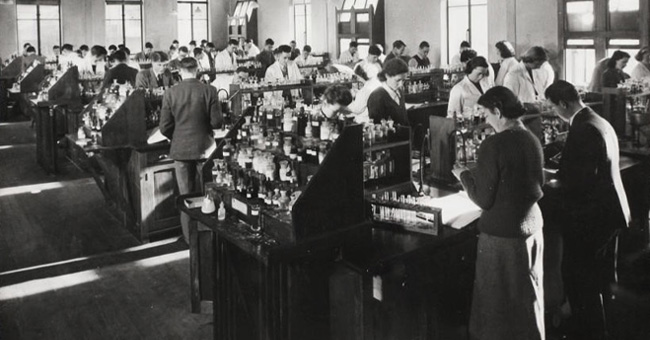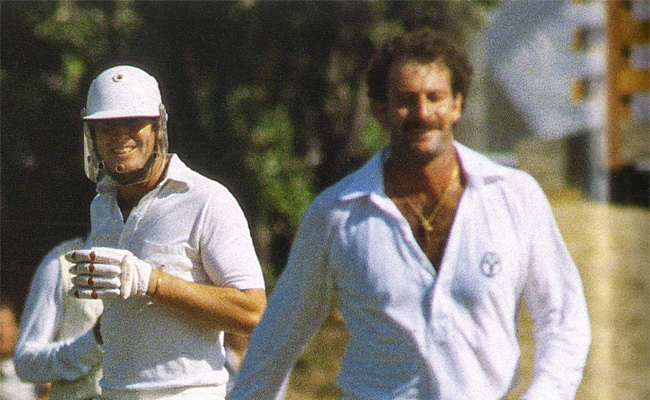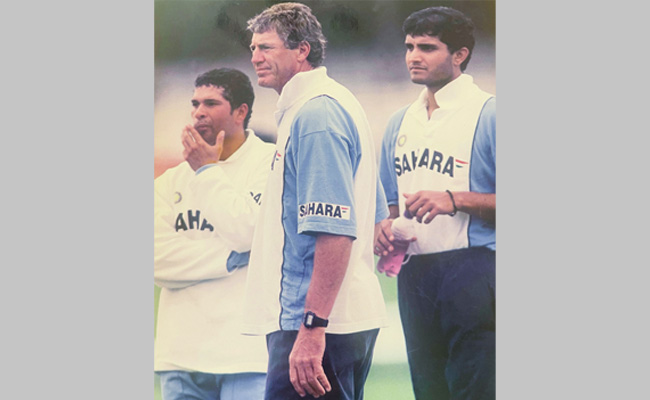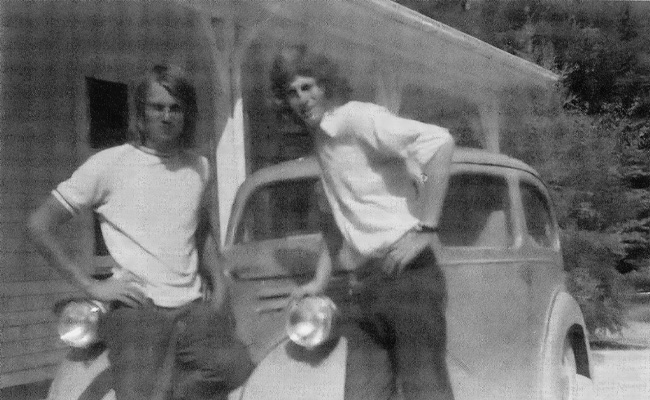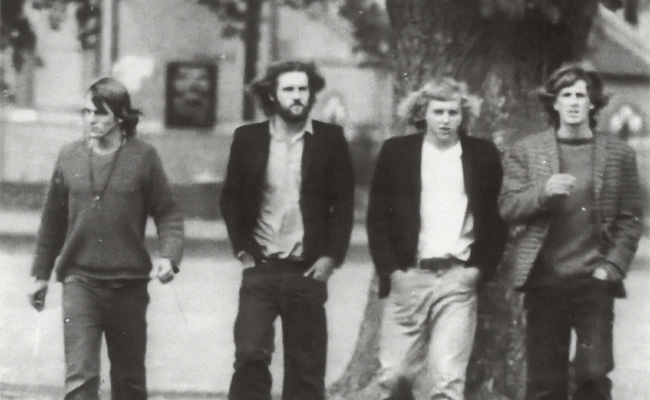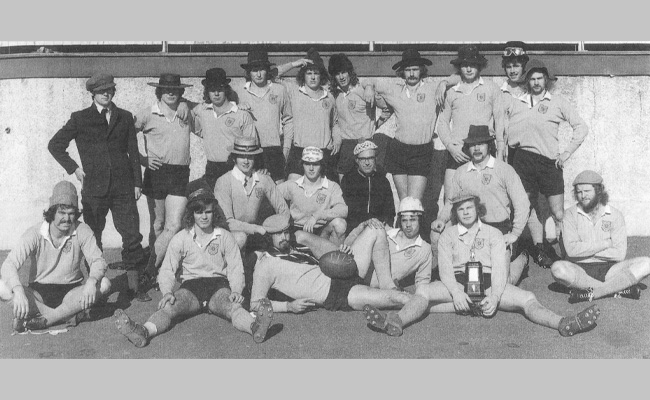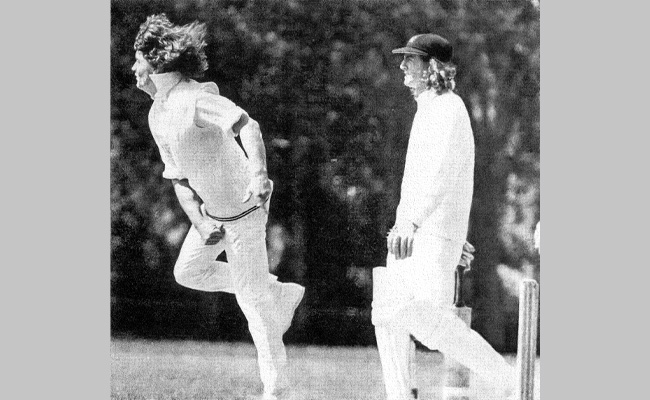@Otago Issue 38
Having travelled much of the globe for cricket, music has been a constant for New Zealand cricketing icon John Wright. Few would know that he once performed in the University of Otago production of The Who’s Tommy, directed by fellow Otago legend, Sir Ian Taylor, in the early ‘70s.
John says not cricket, but rugby was a bigger part of his time at the University.
“I played two seasons for the University B’s and just loved it. I’d played social rugby in my first year and was asked to join the B’s. I was 18 and only weighed 10½ stone.”
Last year John came back to Otago for the 50th anniversary reunion of his beloved University B’s.
“It was wonderful to walk through that beautiful campus again and the sporting facilities at Logan Park are fantastic and such an asset for the town,” he says.
Growing up on a mixed-use farm near Christchurch, he completed his schooling at Christ’s College.
“I knew that I didn’t want to study agriculture, so I went down to Otago with some of my mates and did a medical intermediate. I failed to get in, which was probably a good thing, as I wasn’t likely to have had the cricketing career that I’ve had if I had gone to med school.”
John spent his first two years at Selwyn College and says he thoroughly enjoyed everything about his time there. “Most students at Selwyn College had a stereo in their room and we were often told by the wardens to turn our music down at night.”
He played a little club cricket in Dunedin, but it was the annual college matches between Selwyn and Knox that stood out during his time at Otago. He thinks the spoils may have been shared and it was himself and future “Double-All Black” Brian McKechnie at Knox College who led the batting for each team.
John says while studying he was selected for a NZ under-20 squad to play the Southland Hawke Cup winning side, however he didn’t ‘win any ‘brownie points’ after skipping the game to attend the Ngāruawāhia Music Festival in 1973 (the first major music festival in Aotearoa New Zealand).
During his three years at the University, he completed most of his BSc in Biochemistry, but it wasn’t until 1994, after some extramural study through Massey University, that he graduated.
Unable to get into the Canterbury first-class cricket squad, after playing in its age group teams, he headed to Northern Districts, where he spent eight seasons playing the sport. He says in 1976 he went to England and played for the Kent Second X1 and it was at this time he got a trial for County Cricket side Derbyshire.
“I got a trial there as a 22-year-old and came back with a contract that changed my life. At that time there were only two other New Zealanders playing professional County Cricket, Dunedin’s Glenn Turner and Aucklander and future NZ captain Geoff Howarth.”
John went on to play 12 seasons at Derbyshire and says at that time it was the place to learn from most of the best players in the world. As well as playing County Cricket, John had many years opening the batting for his home country.
Not long after ending his professional career he was offered a management position at then multinational corporation Fletcher Challenge. John decided that corporate life wasn’t for him and left after three years. However, he says he learned a great deal about planning and strategy there.
In 1996 John got a call from Kent County Cricket to return to the UK and work as a coach. He says during the four years at Kent he applied much of what he had learned at Fletcher Challenge.
Then came what many called a ‘surprise decision’, when he became the first overseas-born coach of the Indian national side.
“This was probably the most incredible cricketing experience of my life, in some ways the most challenging and in others the most rewarding.”
He says the Indian team had many superstars, but had to learn to play tougher as a team and he says they did this under his tenure, including showing they could win away from home soil.
After this he worked for NZ Cricket for three years, including 18 months as the national coach.
“We managed to beat Australia in Australia during this time and both as a player and a coach I always loved beating Australia at home. I’d grown up on the farm listening to Australian cricket on short-wave radio, there was no live TV, so that was my first exposure to international cricket.”
In 2013 John returned to India as the coach of Indian Premier League (IPL) team the Mumbai Indians. He says this again proved a very rewarding experience, which reunited him with his former Indian team captain Anil Kumble, this time as a colleague.
While he was coach, the Mumbai Indians won a championship. Eventually Aussie great Ricky Ponting took over as the side’s coach. For the last decade John has maintained his association with the Mumbai Indians as a talent scout.
He says travel has always been a big part of his life and his guitar has travelled with him and he is still actively performing and producing new music.
“Unlike cricket you can keep on playing music your whole life.”
He still spends about two months a year following the top cricket leagues in India, keeping a close eye on the talent. For most of the rest of the year he lives on a ‘hobby farm’ near Christchurch.
“The IPL is big business in India, you must have a minimum of seven Indian-born players in each side, so there’s a big investment in local players.”
He’s maintained his association with Derbyshire and last coached there in 2017-18.
“I still keep in touch with one or two of the mates who went through school and university with me, and if I don’t support Canterbury then Otago is my team.”
And what’s the best team he’s ever been involved with? It’s not a sporting side, but his school choir from Christ’s College.
John Wright attended the University of Otago from 1972-74. He played for the NZ cricket team from 1978 to 1993. His maiden test at the Basin Reserve in Wellington in February 1978 was the first victory by a NZ side over England. His final match was in March 1993, where NZ beat Australia at Eden Park. In 1992 he became the first New Zealander to score 5,000 runs in test cricket. During his international career the left-handed opener scored 12 centuries and 23 half-centuries at an average of 37.82
